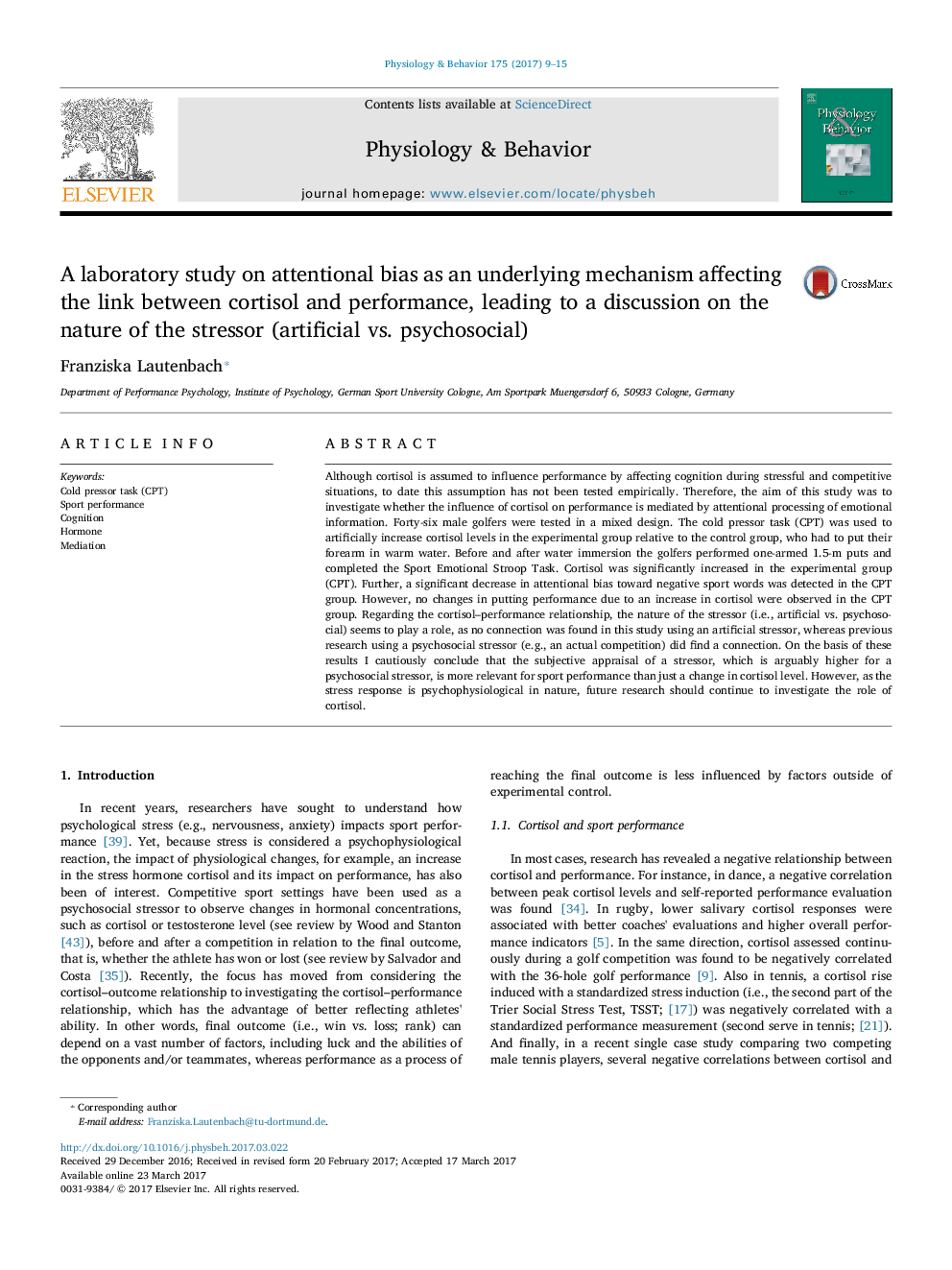ترجمه فارسی عنوان مقاله
یک مطالعه آزمایشگاهی در مورد تعصب توجهی به عنوان یک مکانیزم پایه ای که بر ارتباط بین کورتیزول و عملکرد تأثیر می گذارد، منجر به بحث در مورد ماهیت استرس (مصنوعی و روانی اجتماعی)
عنوان انگلیسی
A laboratory study on attentional bias as an underlying mechanism affecting the link between cortisol and performance, leading to a discussion on the nature of the stressor (artificial vs. psychosocial)
| کد مقاله | سال انتشار | تعداد صفحات مقاله انگلیسی |
|---|---|---|
| 127835 | 2017 | 7 صفحه PDF |
منبع

Publisher : Elsevier - Science Direct (الزویر - ساینس دایرکت)
Journal : Physiology & Behavior, Volume 175, 1 June 2017, Pages 9-15

